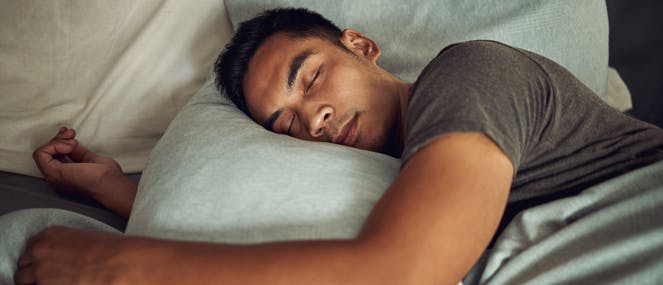
- Health hub/
- A Guide To Men's Health And Supplements/
- Fat chance of sex


Erectile dysfunction (ED) can significantly impact quality of life. Epidemiological research has found individuals with higher BMIs to be at greater risk of ED.
This association prompted researchers from the Second University of Naples (Italy) to perform this randomised single-blind trial investigating the effects of weight loss and increased physical activity on erectile dysfunction in obese men.
One hundred and ten obese men (BMI >30) with a sedentary lifestyle (<1 hour/week of physical activity), who were free from diabetes, hyperlipidaemia or hypertension, were enrolled from the outpatient department for weight loss at the Second University of Naples. All subjects were aged 35-55 years and had International Index of Erectile Function (IIEF) scores of less than 22, indicating ED.
Subjects were randomly assigned to either the intervention group or control group. Subjects in the intervention group were given detailed, individualised advice on how to achieve a reduction in body weight of 10% or more. The program included caloric restriction, goal setting, self-monitoring (through food diaries and monthly group sessions), and individualised guidance on increasing their level of physical activity. They had monthly sessions with a nutritionist and exercise trainer for the first year and then bimonthly for the second year. Subjects in the control group received general oral and written information about healthy food choices and exercise at baseline and bimonthly throughout the two-year trial.
After two years, subjects in the intervention group compared with subjects in the control group consumed a greater percentage of calories from complex carbohydrates, protein and monounsaturated fat; had a lower ratio of omega-6 to omega-3 fatty acids; had a greater intake of fibre; and had lower intakes of saturated fats, cholesterol and calories (all P<0.05). Physical activity levels increased significantly more in the intervention group (from 48 to 195 minutes/wk) than in the control group (from 51 to 84 minutes/wk; P<0.001). Men in the intervention groups also experienced significant decreases in body weight, BMI, blood pressure, reactive protein, waist-to-hip ratio, levels of serum glucose, insulin, total cholesterol and triglycerides, as well as an increase in HDL levels (all P<0.05).
No significant changes were observed in the control group for any of these parameters. ED scores improved significantly in the intervention group (from 13.9 to 17.0; P=0.001) but remained static in the control group. Thirty-one per cent of men in the intervention group regained sexual function compared to 5.5% in the control group (P=0.001).
The authors concluded that lifestyle changes improved biochemical parameters and significantly improved sexual function in obese men suffering from ED.




